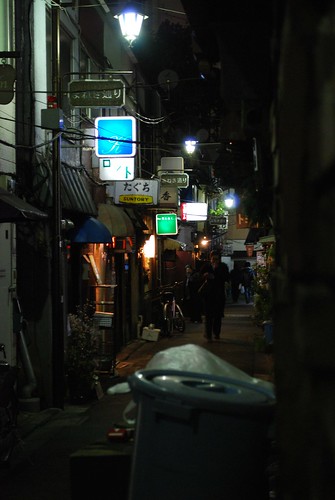{Photos by rocketlass.}
It's hard to top a month that brings a Cardinals world championship, the first new book by Helen DeWitt in more than a decade, Claire Tomalin's Dickens bio, 900 pages of new Stephen King, and 900+ pages of what seems to be regarded as Haruki Murakami's masterpiece, 1Q84. The harvest is in, folks.
I'll have more to say about Helen DeWitt's Lightning Rods later. For now, I'm immersed in the Murakami. (On the train tonight, a woman saw me reading and said, "You're so far already!", just as I'd been thinking, "Oh, I wish I'd been able to find more time to read this the past few days!") Not surprisingly, it's full of his typical points of interest--ears, young girls, sex, detailed bachelor cooking, music, doubles--all described in his usual deliberately flat, affectless prose, sentences which, like those of Bolano, manage simultaneously to be plainspoken and pregnant with unarticulated deeper meaning (and often dread).
Three hundred and fifty pages in, I've got no real sense of where the story is going, or even what Murakami's planning to draw out of his usual themes of memory, trauma, and the way that an ordinary life can suddenly--and sometimes catastrophically--be catapulted into a new, strange realm. What's fun (and new? or am I forgetting an earlier book?) is how deliberately he foregrounds his use of that sort of slippage between realities. In the opening pages, a woman in a taxi is stuck in traffic on one of Tokyo's elevated expressways. She's going to be late for a meeting, so the driver suggests a shortcut down a hidden service stairway. Be careful, he tells her,
"And also," the driver said, facing the mirror, "please remember: things are not what they seem."That warning--familiar, if in different, nearly reversed form, from the warnings that pepper fairy tales and folk tales just before the hero chooses a fateful turn in the road--reads almost like a dare: yes, Murakami seems to be saying, I'm going to be doing this again, splitting the world and asking you to choose. Come along.
Things are not what they seem, Aomame repeated mentally. "What do you mean by that?" she asked with knitted brows.
The driver chose his words carefully: "It's just that you're about to do something out of the ordinary. Am I right? People do not ordinarily climb down the emergency stairs of the Metropolitan Expressway in the middle of the day--especially women."
"I suppose you're right."
"Right. And after you do something like that, the everyday look of things might seem to change a little. Things may look different to you than they did before. I've had that experience myself. But don't let appearances fool you. There's always only one reality."



Likewise; we're in Chicago this week and a fellow at a cafe this a.m. told me it has been rather visible as of late. I encountered a pair of thumbs up while sitting outdoors. The dreamlike alterity does tend to envelope; I'd like to this has been ehanced in this urban milieu.
ReplyDelete